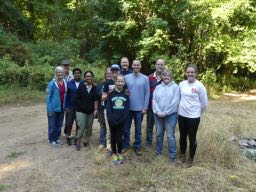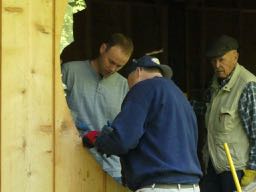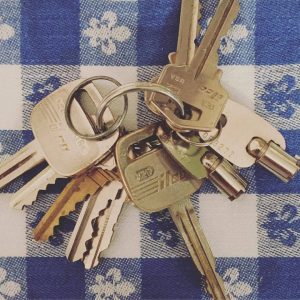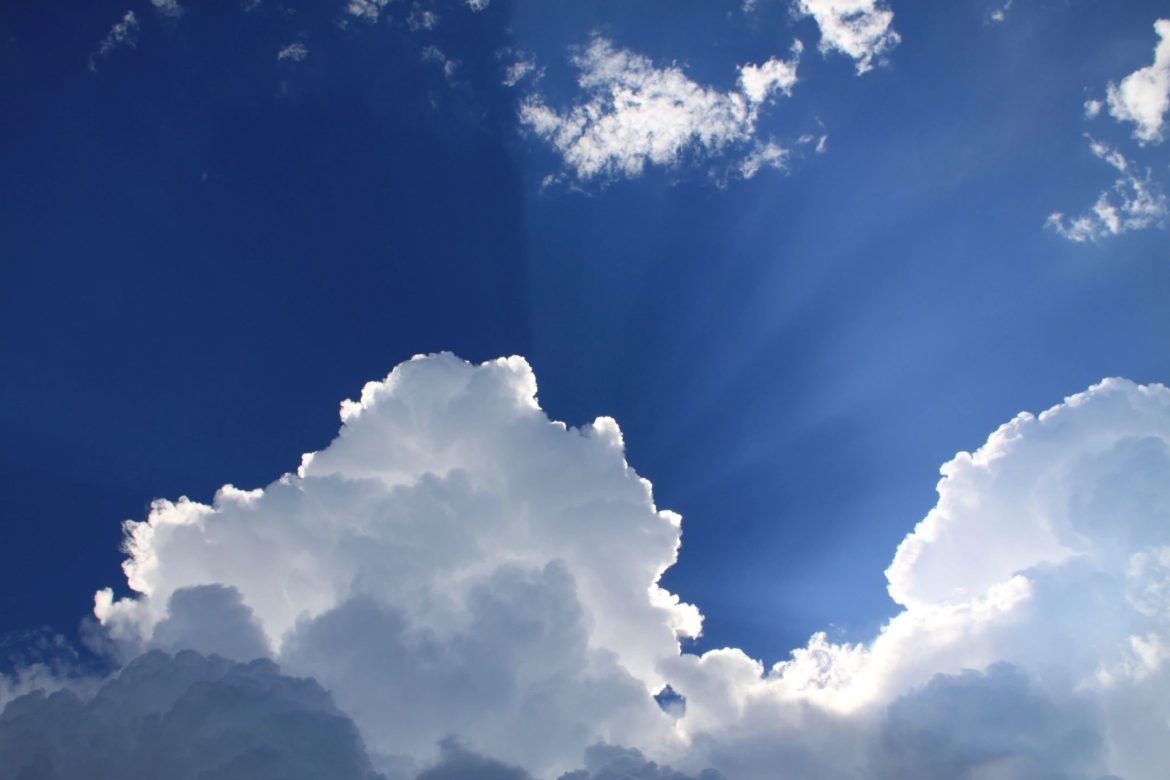by Christine Sine.
Godspace is getting a new look, a new focus and a new team.
I am once again facilitating the blog, reenergized by my time away and ready to help refocus and renew its purpose. I so appreciate the work Andy Wade has done over the last few years to help me transform it from my personal blog to a community blog and resource center with more than 50 contributors from 10 countries. We hope to continue expanding this and improving the quality of the resources we provide. I am delighted that Andy will continue to contribute compelling articles like his recent Shalom in a World of Conflict and look forward to hearing the fresh insights that emerge as he begins a new job with Gorge Owned in Hood River, Oregon where he lives. He is still a very good friend and I will miss his monthly trips up to Seattle (a four hour drive) for our planning meetings.
Godspace is currently being updated and redesigned and I am blessed to have the help of Hilary Horn, photographer and graphic designer. We love having Hilary her husband Trevor and sons Ephraim and Abram as part of our small community.
Here is our current draft of the new vision statement. It is still taking shape and we appreciate any comments or suggestions you might have as we move forward.
Godspace: an invitation to create a pathway to a more vital whole-life faith. Through diverse voices from around the world we seek to inspire readers to notice, explore and experiment with fresh ways to connect more intimately to God, more effectively to their neighbours and more responsibly to creation. We are concerned about issues of sustainability, community, justice and spirituality and work to motivate followers of Jesus to develop a faith that is expressed in every part of their lives.
The Godspace theme for September and October is Let Hate Become Love. Violence and hatred seem to prevail in our world today, yet God is a God of love. What does love look like in our world today and how can we be instruments of God’s love into our world and the lives of those around us? I have been inspired recently by people who dance together, play together, work together and gardening together as acts of reconciliation https://godspacelight.com/2017/08/21/meditation-monday-dance-your-way-to-reconciliation/ It heartens me to know that such hope giving events can have a lasting impact on our behaviour.
In November and December the blog will focus on preparing our hearts and lives for Christmas. Our theme is Joy to the World. This is a favourite Christmas hymn for many of us, yet I wonder what is the joy that we look forward to in this season and how can we help bring it into the world? I have sensed for a long time that we need more than just the month of Advent to prepare us for the celebration of Jesus birth and this year we will take more time and encourage you to do so too. If you would like to submit a post to Godspace please contact Hilary at godspacelight@gmail.com
By Steve Wickham —
DIVISIONS separate Jesus-believers and nonbelievers the world over.
But those same divisions also cause Christ-believers to fight each other, and this has never been so evident as through the age of highly visual, codifiable social media, especially around ethics within God’s kingdom here on earth.
And on all sides of every debate are dualistic, all-or-nothing, I-am-right-you-are-wrong thinkers. We’re all guilty. We all partake in what the AAs call ‘stinking thinking’. Despite Jesus’ final command: love one another. Richard Rohr teaches that we’re all, by default, either-or thinkers. We’re geared to decide, and thought that ponders for decision is the antithesis of the contemplative experience: to just be — could be called, a state of shalom.
Thinking is shown as a barrier to shalom, yet contemplation is the broker of Presence.
It’s simple to illustrate the thinking that impedes our journey toward shalom. Think of me, or this article, or the way it’s presented, or something on this page you disagree with, or with the amount of engagement the article creates (little or much). Chances are, in some way(s), you’re saying ‘no’ to something, judging something, without even being aware of it. Maybe you’re too positive. We all do it. The mind is dualistic by nature, especially in the modern West. The more knowledge has puffed us up (1 Corinthians 8:1), the more degrees we have the worse it can get, lessened is our capacity to be freely open of mind and heart.
The dualistic mind has the default, ‘no’. It is negatively autonomic. We don’t typically come to new things with a ‘yes’ or ‘can do’ attitude by intuitive default. We’ve learned to judge, and unfortunately, we do it with light-speed efficiency. And we get stuck in judging the smallest detail and then, because of the prominence of indignation, our attention gets caught there. Our thinking distracts our attention and derails our focus.
But as Jesus-followers we know judging is sin. We ought to know our thinking is the problem, and we need to submit our thinking to the Spirit’s overhaul. We may invest in the spiritual practice of contemplation. So, we learn to approach God in silence, and silence becomes our cherished prayer language. And God speaks! Always through silence.
Engaging in contemplative prayer is how we enrol ourselves in the school of God’s Presence, and achieving shalom is for dux students. It requires us to attain the skill of shutting down our mind to experience shalom. It involves shutting down the mind in the mode of surrender, departing from the cognitive, thoughts falling away, by engaging in intentional, even determined rest that becomes a practice.
Try and experience shalom when you watch sport or broadcast news or anything competitive on television — it’s impossible. Our thinking is so automatically invested in what we’ve already decided to think. It’s the same when we seek peace amid distraction. Frustration ensues. We need to organise our environment, making it conducive to rest.
Presence is the broker of shalom. It’s achieved when, in contemplation, there is freedom to experience the present, through freedom from thought.
When we practice Presence, experiencing shalom, God counsels us, and we become less judgmental, more able to deploy wisdom in our daily lives. And what emerges is the fruit of the Spirit so we’re able to love one another.
by Christine Sine

The clean up crew
A couple of weeks ago, Tom and I were excited to join James Amadon, the new MSA executive director and his friends for a clean up day on the Camano property. In a couple of hours we cleared out the remaining broken glass from the vandalism and hauled away loads of trash. In the grass where our labyrinth was usually located we found a painted stone that read: New beginnings are often disguised as painful endings. The transition to new leadership has gone very well, but it is painful to see the damage on the property and to struggle

with how to move forward without it happen
ing again. It is encouraging to see James’ enthusiasm and the new things that are starting to grow. I I sensed God is saying This is a new and important beginning.

You can catch a glimpse of what is emerging in this video of Tom interviewing James a few days ago. Expect to hear much more in the near future about these exciting developments and for more information on how you can be a part of what is happening email James at jamadon316@gmail.com.
by Christine Sine
Last week, many of us were transfixed by the amazing images of the solar eclipse that blazed a path across the U.S. from Oregon to South Carolina. Here in Seattle, we were not plunged into darkness but it was still an amazing experience.
 A couple of weeks ago, we were just as impacted by the hazy smoke which blanketed Seattle curtesy of the horrific wildfires in British Columbia to the north. The red sun that greeted us each morning and evening and the red glow around Mt Rainier as we returned from our European trip are indelibly imprinted on my memory however.
A couple of weeks ago, we were just as impacted by the hazy smoke which blanketed Seattle curtesy of the horrific wildfires in British Columbia to the north. The red sun that greeted us each morning and evening and the red glow around Mt Rainier as we returned from our European trip are indelibly imprinted on my memory however.

Nineteen of the fires have now merged to create the largest wildfire ever recorded in B.C. history. Many people, especially those with respiratory conditions, infants and the elderly are still struggling with health issues associated with the pollution. The fires were made worse by the hot dry weather – the longest stretch of days without measurable rain ever, and some of the hottest temperatures on record, ironically relieved a little by the haze. In spite of that this is still predicted to be one of the hottest summers on record, not just here but across much of the Northern hemisphere. And much further south, in Antarctica we have just witnessed the break away of the largest iceberg on record.
Overwhelming? Yes. Daunting? Yes. Powerless to do something? No.
Our climate is changing and whether we believe human activity has created this change or not we still have a responsibility to respond. God watches over us but still calls us to steward the earth and its resources and has given all of us the capability to make a difference. Here are a few simple things that we can all do:
- Walk more. Walking is not only good for our bodies it is good for the earth. Many of us walk for our health, but we can intentionally walk so that we cut down on our use of cars too. Since Tom and I decided to walk 10,000 steps a day we more frequently walk to the grocery store. What other local errands could be walked to rather than driven to?
- Use public transport. On our recent trip to Europe we relished the use of buses and trains. We did not need a car. This is a little more challenging in the U.S. but a growing number of urban dwellers find they too can do without a car. It is good for their budgets as well as the health of the earth.
- Buy a bike. A growing number of cities are becoming bike friendly. This is a great way to get around. It saves energy, causes no pollution and is good exercise.
- Commit to alternative energy. Electric cars, solar panels on houses, encouraging renewable energy production by our utility companies are always to reduce the polluting effects of coal and oil.
- Make your house energy efficient. We recently added insulation to our attic space and added ceiling fans. It has helped keep the house cooler in the summer and warmer in the winter. Having an energy audit done of your house is one simple way to help reduce energy consumption and bring a small measure of healing to the land.
- Cut your water consumption. I grew up with low-flow toilets and shower heads and was amazed when I moved to the U.S. to find that these were not in regular use. That has changed but there are still many homes that have not made the move. And in the garden, moving to drought resistant plants and adding thick layers of mulch are simple ways to cut the need for watering.
- Stop using herbicides and toxic chemicals. Both in the house and the garden the use of toxic chemicals contributes to pollution of land and water. Baking soda and vinegar are our best friends – killing bugs and cleaning surfaces. This website as some good simple recipes for cleansing solutions.
- Eat locally & reduce the meat. Some of us are reluctant to go vegetarian, but can still reduce our energy consumption by eating locally grown meat. The shorter distances our food has travelled, the less energy is consumed and the more healthy it is for the environment.
- Recycle creatively. I love to think about ways to reuse furniture, containers and waste products, and such recycling has become an art. Before you throw something into the land fill, search Pinterest for creative ways to reuse it. You might be surprised at the possibilities and delighted with the fun results.
- Buy less, Make Your Own. I have always been a believer in homemade food, clothing and even toys for kids. There is something very satisfying about making something ourselves. And when we make it or grow it ourselves we don’t want to throw it out so we become less consumptive too. We grow about 40% of our own vegetables and fruit. I still make my own granola, yoghurt and baked goods, dehydrate fruit, make preserves and marinara sauce. Have great fun in the process and joy in the product.
What Is Your Response?
Sit prayerfully for a few minutes and think about your own life. Watch the video of the eclipse below and then read through Psalm 121 above. As God watches over you what are the implications for your stewardship of creation? What are some simple steps you could take to reduce your eco footprint and help heal the land?
The gulf coast of Texas and Louisiana is bracing for the impact of Hurricane Harvey which is expected to bring up to 3 feet of rain to some areas. In China and Hong Kong, people are mopping up after Typhoon Hato which left 12 dead from high winds and extensive flooding. In Switzerland, the village of Bondo has been evacuated following a massive landslide. And in British Columbia, over 1,000 have fled their homes as new wildfires flare.
This prayer is adapted from one I wrote following Hurricane Sandy. Please pray it with me for all victims of these and other disasters in our world today.
Lord, you are always with us,
Our shelter in the midst of every tragedy.
In the quiet and the storm you surround us,
Your love stays closer than a friend.
In this time of storm, of mudslide and disaster be with all who are vulnerable.
Hold them close as the winds blow, the oceans rage and the land slides.
Place your arms around them as the fires burn, trees fall and rivers rise.
Keep them safe from wind and rain and fly debris.
Guide those that respond and keep them safe.
Be with rescuers and firemen,
With electric workers and emergency crews,
With all who reach out to neighbours with your love and compassion.
Comfort and protect them in the midst of danger and of strife.
May all find shelter in the embrace of your wings.
By Lilly Lewin
Sometimes I need to be reminded that I am not stuck.
Sometimes I need to be reminded that I have been set free.
Sometimes I need to be reminded that Jesus is standing at the door and knocking,
All I have to do is open the door.
Sometimes I need to be reminded that I have been given the keys.
Sometimes I have built a barricade between the door and me.
Sometimes I have put lots of old shoes, umbrellas, hats, coats, backpacks and shopping bags by the door and there is just so much stuff that I feel trapped inside.
And I totally forget that I have the keys.
I can open the door and leave the clutter and old things behind me.
Sometimes I need to be reminded that I have been given the keys,
the keys to the door, the keys to the Kingdom.
I am not stuck.
I am not locked in.
It is not impossible.
I have been given the keys.
Jesus tells Peter that he has been given the keys to the Kingdom.
And that’s not all. You will have complete and free access to God’s kingdom, keys to open any and every door: no more barriers between heaven and earth, earth and heaven. A yes on earth is yes in heaven. A no on earth is no in heaven.” Matthew 16:19 The Message
Keys! We too have been given keys! Keys to unlock things that we’ve been keeping closed and hidden away. Keys to unlock the blockages in our hearts and in our heads, the things that keep us stuck and keep us hidden and keep us afraid.
What does it feel like to hold the keys to something?
It usually means you can sleep somewhere or drive somewhere.
You have access. You have power.
What needs unlocking in your life right now? Are their doors that are shut tight? Are their vaults that you have stored away and refused to open? Are there old closets of crap that need to be cleaned out?
What locked things would you like to see opened in your life?
If Jesus has handed you the keys, can you believe, can you accept, that Jesus will help you unlock those places? Or those things you’ve kept closed?
What about those places or problems in your world that feel locked down?
What about places of injustice or pain that feel impossible to fix
What if you’ve been given the keys?
What if you have the key that unlocks and opens the way through?
What if we just need to ask for the right key?
Jesus, today, I’m in need of keys to unlock my fear.
Today, I need keys that will unlock hatred, bitterness and uncertainty that can so quickly take root inside of me.
Jesus, today I’m asking for keys to unlock misunderstanding and division within our country.
Today, I am asking for new keys to help unlock the broken systems that keep people in poverty.
Jesus today I need your keys to unlock the sense of overwhelm I often feel because of the suffering in so many places around the world.
Today, Jesus, I am thankful for your gift of keys.
What do your Kingdom Keys look like? What keys do you need today?
What things do you want those keys to unlock?
Let the keys that you see, the keys that you hold and use this week, be reminders that Jesus has given you Kingdom Keys!
By Rev. Rebecca Sumner, Adapted by Andy Wade
Lord, make us instruments of your peace.
Make me an instrument of your peace in Hood River, Odell, Parkdale, White Salmon, Bingen, the Gorge, your world.
Where there is hatred, let me sow love.
Where politics divide, where the poor are excluded, where people of other faiths and sexual orientations are threatened, harassed, and killed, help me to be a sower of friendship, acceptance, and love.
Where there is injury, pardon.
Where our Latino sisters and brothers live in fear of deportation and families are torn apart, where people of color fear the people and systems that should provide protection, and where Native peoples continue to go unrecognized by the government resulting in a lack of access to housing, water, and fishing rights, in all these places and more, help me to listen, seek forgiveness, and become an ally through the shalom work of God.
Where there is doubt, faith.
Where people have given up on God because of the abuse and hypocrisy of God’s people, help me to restore faith by listening to their pain, seeking forgiveness, and cultivating deeper relationships.
Where there is despair, hope.
Where addiction, abuse, unemployment, lack of housing and other issues drags my neighbors into despair, help me to be a steadfast friend. Show me how to bring hope and healing to all those around me.
Where there is darkness, light.
For those in my community trapped by the prison system, help me to be a beacon of light, bringing hope, friendship, and possibility.
When destruction of God’s creation is rampant and it seems we’re moving toward irreversible crisis, help me to shine light on the possibilities to make a better world and to share examples of how it’s already happening.
Where there is sadness, joy.
Where people sit in loneliness and isolation, help me to see. Help me to make time to be a friend, to listen to stories of pain and grief, to be present without passing judgement or trying to fix them. Where grief overwhelms, let mine be the hand of love holding on together until joy returns.
Divine Master, help me to seek not my own comfort, but the comfort of others.
Help me to understand other’s as a pathway to being understood.
Help me to love others sacrificially as you love us.
For it is in giving to others and seeking for their best that we, ourselves, receive. It is in extending the hand of peace and forgiveness that we embrace a peace that comes to all,
And it is in dying to our own selfish interests in favor of the other that the Kingdom of God is unleashed in our midst.
Amen
As an Amazon Associate, I receive a small amount for purchases made through appropriate links.
Thank you for supporting Godspace in this way.
When referencing or quoting Godspace Light, please be sure to include the Author (Christine Sine unless otherwise noted), the Title of the article or resource, the Source link where appropriate, and ©Godspacelight.com. Thank you!







